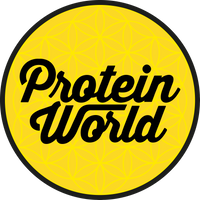
RELATIONSHIP BETWEEN YOUR BRAIN AND GUT
We’ve all felt 'butterflies' in our stomach or had a 'gut feeling' about something. Contrary to popular belief there is actually a scientific reason why we use these phrases. Our guts are extremely sensitive to emotion due to the connection between the brain and our gastrointestinal tract. This bidirectional link is also known as the 'gut-brain axis'. All too often we are seeing people with gastrointestinal disorders such Irritable Bowel Syndrome (IBS) dismissed by doctors as hypochondriacs and aren’t looking into the significant emotional impact stress and anxiety can have on the gut. What actually is the gut? Many people refer to just the stomach as the gut, however it is actually made up of the hollow tube that includes your gullet, stomach, small intestines and then large intestine.
What is the Gut-Brain Axis?
The gut (also known as the gastrointestinal tract) undertakes the process of digestion, beginning with the mouth and ending at the you-know-what! The gut-brain axis however is a network of biochemical reactions that link both the cognitive and emotional sections of the brain with our gut via the central nervous system. The vagus nerve is one of the main components involved in this connection and plays a key role in the parasympathetic nervous system by delivering an extensive range of important signals in both directions between the brain and other organs including the gut. Studies carried out on humans have shown that by stimulating the vagus nerve at different frequencies we are able to make people feel anxious or content and has now been approved by the European Union as a form of treatment for those suffering with depression.

Irritable Bowel Syndrome and the Brain
IBS is one of the most common disorders of the digestive system in the modern world. It’s characterised by bloating, as well as diarrhoea and/or constipation in some. It is by no means a coincidence that those suffering from IBS have increased incidence of anxiety or depressions due to the brain-gut connection. Scientists suggest that this may be associated with constant inflammation in the gut caused by an undiagnosed food intolerance or an imbalance in our gut microbiome (the billions of bacteria, viruses and fungi that have decided to take up residence in our gut).
Gut Microbiome and the Brain
Studies have now demonstrated links between the gut and our immune system, skin conditions, hormone imbalances, obesity, autoimmune disorders and more recently our mental health and what’s more, this evidence is only growing. The links can be associated with a lack of variety or quantity of good bacteria present in the gut. It’s for this reason that we have added our Protein World Friendly Bacteria Blend to our Slender Blend - containing 2 different strains of bacteria- Bifidobacterium Bifidum and Lactobacillus Acidophilus. By introducing these probiotics into your diet you may be able to improve not only any digestive issues present but also your mood - win win!
The lesser known term “prebiotics” are non-digestible foods that are used by the gut microbiome to produce nutrients such as short-chain-fatty acids. These come in the form of dietary fibre such as inulin, present in The Slender Blend that slows down the emptying of the stomach and increases the time it takes to digest and absorb nutrients. This prolongs the feeling of fullness and significantly reduces appetite aiding weight loss.

The Gut and Serotonin
By now many of us have heard about the neurotransmitter serotonin. This chemical is strongly associated with fluctuations in mood. Although most people associate serotonin with the brain, up to 95% of the body’s serotonin is in actual fact produced in the gut and plays a key role in how the bowel functions. There are serotonin receptors both in our brain and our gut so it’s is no wonder that when patients are prescribed anti-depressants many of side effects are gut-related.
The Link With our Diet
What we eat can hugely affect our gut environment. Processed and high sugar foods although they may taste great can wreak havoc in guts. To give your gut the best chance to work as efficiently as it’s made to do, eat a variety of whole foods, lean protein, reduce your sugar, salt and red meat intake, ample vegetables, healthy fats and try to include some probiotics in there.
It’s important to remember that an unhappy gut can cause an unhappy mind so next time you are feeling very low pay attention to how your gut is feeling, are you eating a healthy diet, are you unnecessarily bloated, are you constipated? The gut is much more than a network of tubes that carry food along its journey, so the sooner you engage with it and get to grips with it the better you will feel. If you have any questions please don’t hesitate to contact our nutritionists at advice@proteinworld.com.
RECOMMENDED PRODUCTS

RELATIONSHIP BETWEEN YOUR BRAIN AND GUT
We’ve all felt 'butterflies' in our stomach or had a 'gut feeling' about something. Contrary to popular belief there is actually a scientific reason why we use these phrases. Our guts are extremely sensitive to emotion due to the connection between the brain and our gastrointestinal tract. This bidirectional link is also known as the 'gut-brain axis'. All too often we are seeing people with gastrointestinal disorders such Irritable Bowel Syndrome (IBS) dismissed by doctors as hypochondriacs and aren’t looking into the significant emotional impact stress and anxiety can have on the gut. What actually is the gut? Many people refer to just the stomach as the gut, however it is actually made up of the hollow tube that includes your gullet, stomach, small intestines and then large intestine.
What is the Gut-Brain Axis?
The gut (also known as the gastrointestinal tract) undertakes the process of digestion, beginning with the mouth and ending at the you-know-what! The gut-brain axis however is a network of biochemical reactions that link both the cognitive and emotional sections of the brain with our gut via the central nervous system. The vagus nerve is one of the main components involved in this connection and plays a key role in the parasympathetic nervous system by delivering an extensive range of important signals in both directions between the brain and other organs including the gut. Studies carried out on humans have shown that by stimulating the vagus nerve at different frequencies we are able to make people feel anxious or content and has now been approved by the European Union as a form of treatment for those suffering with depression.

Irritable Bowel Syndrome and the Brain
IBS is one of the most common disorders of the digestive system in the modern world. It’s characterised by bloating, as well as diarrhoea and/or constipation in some. It is by no means a coincidence that those suffering from IBS have increased incidence of anxiety or depressions due to the brain-gut connection. Scientists suggest that this may be associated with constant inflammation in the gut caused by an undiagnosed food intolerance or an imbalance in our gut microbiome (the billions of bacteria, viruses and fungi that have decided to take up residence in our gut).
Gut Microbiome and the Brain
Studies have now demonstrated links between the gut and our immune system, skin conditions, hormone imbalances, obesity, autoimmune disorders and more recently our mental health and what’s more, this evidence is only growing. The links can be associated with a lack of variety or quantity of good bacteria present in the gut. It’s for this reason that we have added our Protein World Friendly Bacteria Blend to our Slender Blend - containing 2 different strains of bacteria- Bifidobacterium Bifidum and Lactobacillus Acidophilus. By introducing these probiotics into your diet you may be able to improve not only any digestive issues present but also your mood - win win!
The lesser known term “prebiotics” are non-digestible foods that are used by the gut microbiome to produce nutrients such as short-chain-fatty acids. These come in the form of dietary fibre such as inulin, present in The Slender Blend that slows down the emptying of the stomach and increases the time it takes to digest and absorb nutrients. This prolongs the feeling of fullness and significantly reduces appetite aiding weight loss.

The Gut and Serotonin
By now many of us have heard about the neurotransmitter serotonin. This chemical is strongly associated with fluctuations in mood. Although most people associate serotonin with the brain, up to 95% of the body’s serotonin is in actual fact produced in the gut and plays a key role in how the bowel functions. There are serotonin receptors both in our brain and our gut so it’s is no wonder that when patients are prescribed anti-depressants many of side effects are gut-related.
The Link With our Diet
What we eat can hugely affect our gut environment. Processed and high sugar foods although they may taste great can wreak havoc in guts. To give your gut the best chance to work as efficiently as it’s made to do, eat a variety of whole foods, lean protein, reduce your sugar, salt and red meat intake, ample vegetables, healthy fats and try to include some probiotics in there.
It’s important to remember that an unhappy gut can cause an unhappy mind so next time you are feeling very low pay attention to how your gut is feeling, are you eating a healthy diet, are you unnecessarily bloated, are you constipated? The gut is much more than a network of tubes that carry food along its journey, so the sooner you engage with it and get to grips with it the better you will feel. If you have any questions please don’t hesitate to contact our nutritionists at advice@proteinworld.com.
- OTHER STORIES -








